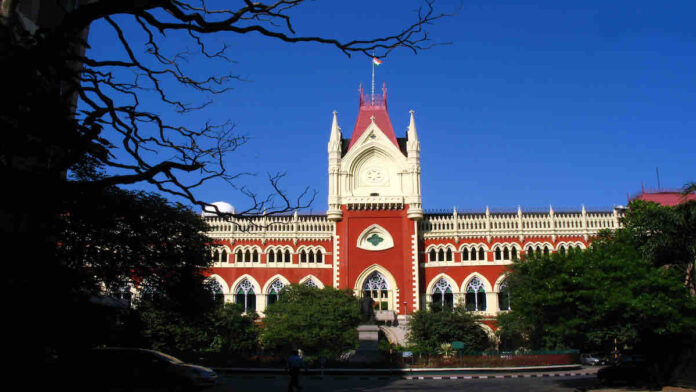A Full Bench of Calcutta High Court comprising Justice Joymalya Bagchi, Justice Suvra Ghosh and Justice Krishna Road has rules that where the accused fails to apply for grant of default bail on expiry of statutory detention period, he cannot be released from jail automatically.
It is to be noted that as per section 36A(4) of the NDPS Act accused is entitled to default bail after 180 days.
Issues Before the Court:

- “Whether an accused upon expiry of period of detention pending investigation as prescribed under Section 36A(4) of the NDPS Act is to be released automatically on statutory bail without a prayer made by him availing such right and expressing his willingness to furnish bail?
- Whether retrospective extension of the period of investigation by the learned Special Court is permissible on a juxtaposed reading of section 36A(4) of the NDPS Act vis-à-vis Article 21 of the Constitution of India?
- Whether at the time of passing of the order extending the period of investigation the learned Special Court would apply the parameters of observing the “progress of investigation” and “the specific reasons of detention” prior to the passing of such order?
- Whether in the interregnum period between the conclusion of the period of investigation, and an order retrospectively extending the period of investigation the petitioner would be liable to be released on statutory bail, especially on a harmonious interpretation of section 36A(4) of the NDPS Act and section 167 of the Cr.P.C.?
Answer by the Court:
- Right of an accused to statutory bail upon expiry of the period of detention prescribed under section 36A(4) of NDPS Act is an inchoate one till he avails of his right by seeking statutory bail either by way of an application or even orally. Hence, he cannot be released automatically on statutory bail on the mere expiry of 180 days even if the prosecutor has failed to submit report seeking extension of detention in terms of the proviso to section 36A(4) of the Act before expiry of the said period;
- Order extending the period of detention under proviso to section 36A(4) of NDPS Act on a report of the Public Prosecutor submitted after expiry of 180 days but prior to the accused availing of his right does not envisage retrospective operation but the total period of detention under the aforesaid provision cannot exceed one year in the whole;
- As per Para 25.3 of M. Ravindran (supra) the right to statutory bail stands extinguished once the report of the Public Prosecutor seeking extension is filed. Hence, remand of the accused till the prayer of the prosecutor is disposed of is traceable to section 167(2) Cr.P.C. read with section 36A(4) of the NDPS Act. In the event, the application for extension is dismissed or an order extending detention is set aside by a superior court right to statutory bail revives in favour of the accused;
- Upon expiry of 180 days of detention, Special Court as a cautionary measure ought to inform the accused (particularly if he is from an underprivileged section of society and is unrepresented by a counsel) of his right to statutory bail. However, failure to intimate the accused of his right by itself would not entitle him to statutory bail unless he avails of such relief;
- Prayer for extension of period of detention must be on the basis of a report of Public Prosecutor which must record progress of investigation and spell out specific reasons to justify further detention beyond 180 days pending investigation;
- Special Court on the basis of the report of Public Prosecutor and materials in support of such plea must be satisfied of the twin requirements, i.e., (a) there is appreciable progress in the investigation and (b) there are specific/compelling reasons to justify further detention pending investigation. Each case has to be decided on its own merits. For example, failure to complete investigation solely on the score of non-submission of FSL report of the samples drawn from the contraband is an institutional shortcoming. This by itself may not justify further detention pending completion of investigation. But if the aforesaid fact situation is coupled with compelling circumstances like complexities in investigation in an organized crime racket or inter-state/ trans-border trafficking, criminal antecedents of the accused giving rise to possibility of recidivism, abscondence of co-accused, etc., constituting ‘specific reasons’ justifying further detention, the Court may be inclined to extend the period of detention and deny liberty;
- Prayer for extension of period of detention must be decided at the earliest without undue delay preferably within 7 days from making such application. Reasons for adjournment must be specifically stated;
- No written notice or copy of report of Public Prosecutor requires to be served upon the accused or his counsel but the accused or his counsel must be present personally or through video linkage at the time of consideration of the application. Accused and/or his counsel must be aware of such consideration and may raise objection, if any, with regard to compliance of mandatory requirements of law.







